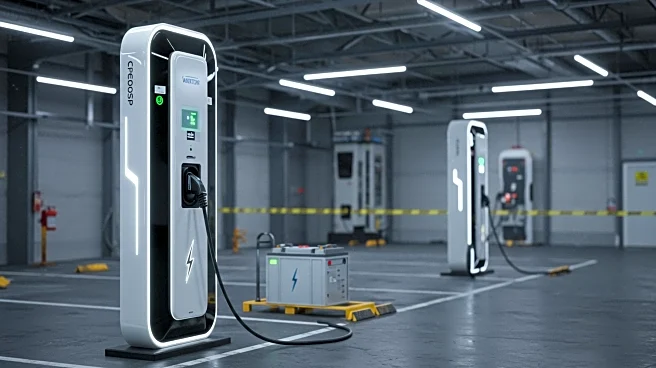What's Happening?
BMW is facing supply chain challenges for its electric vehicle production in the United States. The company's partner, AESC, has paused and potentially canceled plans to supply battery cells from its South Carolina factory. As a result, BMW is considering importing battery cells from AESC's Chinese factories. This decision is influenced by political and market uncertainties, including tariffs between the US and China. BMW is converting its Greer/Spartanburg plant in North Carolina to produce electric cars based on the 'Neue Klasse' and has established a battery assembly facility in Woodruff. The shift to Chinese batteries could impact BMW's production schedule due to validation and integration requirements.
Why It's Important?
The potential shift to Chinese battery imports highlights the complexities of global supply chains and the impact of geopolitical factors on manufacturing decisions. For BMW, relying on Chinese batteries could offer short-term cost benefits but may face long-term challenges due to tariffs and political tensions. This situation underscores the importance of developing robust domestic supply chains for electric vehicle components, which is crucial for the US automotive industry's competitiveness and sustainability. The decision could affect BMW's production timelines and business strategies, influencing the broader market for electric vehicles in the US.
What's Next?
BMW may need to revisit its production and business plans if it proceeds with importing Chinese batteries. The company will likely explore alternative US supply chain options to mitigate risks associated with tariffs and political uncertainties. Stakeholders, including industry analysts and policymakers, will be closely monitoring BMW's decisions, as they could have implications for the US electric vehicle market and manufacturing sector. The situation may prompt discussions on policy measures to support domestic battery production and reduce reliance on foreign imports.
Beyond the Headlines
The reliance on Chinese batteries raises questions about the sustainability and security of supply chains in the automotive industry. Ethical considerations regarding labor practices and environmental standards in battery production may also come into focus. Additionally, the shift could influence technological innovation, as BMW may need to adapt its vehicle integration and software systems to accommodate different battery specifications.










